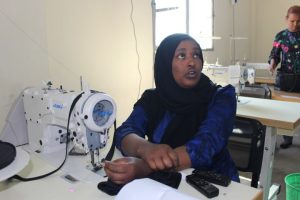
Presents first quarter performance
BISHOFTU –The Ministry of Agriculture (MoA) has unveiled a new “Agriculture and Rural Development Policy” aimed at enhancing the understanding of agricultural resources and modernizing the sector.
To introduce this policy and present the first-quarter performance for the current fiscal year, the MoA organized a two-day discussion forum for employees, stakeholders, and senior officials from state agriculture bureaus.
During the launch, Agriculture Minister Girma Amente (PhD) noted that the primary objectives of the new policy include boosting and modernizing the agricultural sector through effective resource management. He indicated the previous policy, which had been in place for over two decades, no longer aligns with the current agricultural landscape, highlighting the need for a new approach.
The minister reported notable progress in the agricultural sector, including increased production and productivity, enhanced agricultural exports, and an expansion of cultivated land. He stressed that prioritizing agricultural finance is crucial for ensuring national food security through effective resource management. In this context, the new policy will facilitate the establishment of an agricultural bank to provide sustainable benefits for farmers in the future.
“In the past three months of this fiscal year alone, approximately 20 million hectares of land were cultivated, marking a significant increase of 2.5 million hectares compared to the same period last year. Additionally, we plan to distribute 24 million quintals of fertilizer this fiscal year,” he stated.
Ethiopia earned 796 million USD from agricultural exports, achieving 103% of the planned target for the quarter. To bolster livestock production, 20 million chickens were distributed in a single day, with a total of 150 million chickens planned for distribution. The inauguration of Grand Parent stock this Thursday is expected to significantly contribute to these goals. The minister also emphasized the importance of managing livestock resources and combating illegal activities, such as contraband.
While focusing on agricultural modernization, Girma underscored that enhancing the capabilities of civil servants is vital for achieving comprehensive agricultural development.
In a presentation, Agricultural Transformation Institute (ATI) Policy Advisor Mandefro Nigussie (PhD) said that the new policy will decisively address agricultural challenges through collaborative efforts. He pointed out that the policy offers alternative approaches to enhance production and productivity, assist with extension services, and promote mechanization.
Modernizing agriculture requires cooperative engagement across various areas, including cereal production, livestock management, and environmental protection. The new policy also lays the groundwork for transformation through the utilization of specialized seeds and technology, development of rural human capital, protection of cultivated lands, securing land rights, fostering collaboration between the private sector and government, and promoting technology adaptation and digital markets.
BY MESERET BEHAILU
THE ETHIOPIAN HERALD TUESDAY 22 OCTOBER 2024





